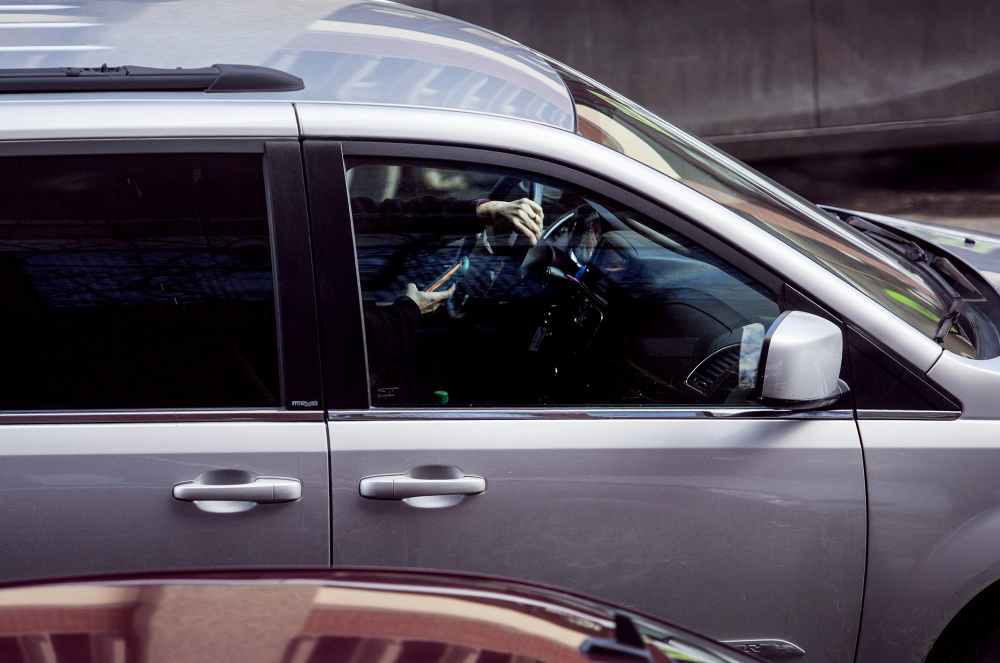Our cars and trucks are safer than ever. So why is the number of Americans dead or injured in crashes each year continuing to climb? We can’t ignore the facts anymore: Phone distraction is killing people on our roads, and as evidence mounts about the hazards of phone use by motorists, a renewed push to ban hand-held devices in motor vehicles in Maine deserves legislators’ support.
Nationwide, according to federal regulators, about 3,500 people were killed in distracted-driving crashes in 2015, around 10 percent of total traffic deaths. The same year, distracted driving was involved in 14 percent of all traffic accidents nationally.
Maine banned texting while driving in 2011. But the law isn’t much of a deterrent, despite the hefty penalties – $250 for the first violation and $500 and license suspension for repeat offenders. Because the state has no ban on hand-held devices, someone stopped on suspicion of texting while driving can easily get off the hook by claiming they were doing something else, such as looking up directions or dialing a phone number.
That would change under a proposal sponsored by state Sen. Bill Diamond, D-Windham: L.D. 1089 would outlaw the use of any hand-held devices while driving, with a $75 fine for the first offense and a $150 penalty for subsequent ones.
Maine has tried to do this before, in 2015. That measure received broad support in the Senate but ultimately failed in the House. Critics there downplayed the seriousness and scope of the offense and wondered rhetorically whether the state would next try to regulate other driver distractions, such as argumentative spouses or roaming pets.
But there’s solid evidence that texting or using a device is more dangerous than, say, talking with a passenger or changing the radio station. A motorist who’s using a handheld smartphone is a motorist whose hands, eyes and brain aren’t focusing on safe driving. And texting is particularly distracting, researchers have found: When we get a text, it lights up the part of the brain that enjoys pleasant experiences and demands more of them.
It’s no wonder, then, that a 2013 Virginia Tech study concluded that texting triples a driver’s crash risk. The evidence keeps on piling up, including a report released earlier this month: Based on data from hundreds of thousands of drivers, Cambridge Mobile Telematics found that phone distraction had occurred during 52 percent of trips that resulted in an accident.
Texting while driving is making our roads less safe, and Maine’s current regulations don’t go far enough to discourage it. We can’t sit by while the problem gets worse – let’s move ahead with a proposal that will make it harder for the lawbreakers on our state’s roads to hide.
Send questions/comments to the editors.



Success. Please wait for the page to reload. If the page does not reload within 5 seconds, please refresh the page.
Enter your email and password to access comments.
Hi, to comment on stories you must . This profile is in addition to your subscription and website login.
Already have a commenting profile? .
Invalid username/password.
Please check your email to confirm and complete your registration.
Only subscribers are eligible to post comments. Please subscribe or login first for digital access. Here’s why.
Use the form below to reset your password. When you've submitted your account email, we will send an email with a reset code.